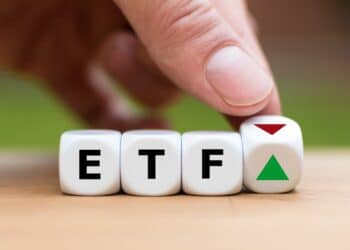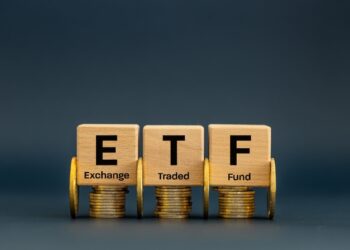China has been under the spotlight as the world copes with the COVID-19 pandemic, but its swift economic rebound may give hope for the rest of the world, while allowing investors to maintain confidence in China.
China was the first country to face the COVID-19 pandemic and the first one out of lockdown but there have since been questions over their early stage handling of the crisis by a coalition of 62 countries, including Australia. There was also the possibility that these 62 countries may have to lower economic dependency on China in the future.
Do these situations affect investors’ confidence of China and is it a reliable market to invest in?
Wenchang Ma, portfolio manager of Ninety One’s All China Equity fund, said when the performance of global equity markets was compared year to date, China was one of the best performers.
“The mainland markets are on aggregate down 5%; originally the market reacted negatively in January upon the outbreak, but that recovered very quickly,” Ma said.
“In March, when the situation spread globally, the market tanked but again started to recover towards the second half of the month.”
Jing Ning, Fidelity China portfolio manager, said Chinese equities declined over the first quarter as COVID-19 spread worldwide which prompted a massive wave of risk aversion in financial markets.
“Chinese policy makers implemented proactive prevention and control measures, including extending the Chinese New Year public holidays, imposing large scale quarantines and travel restrictions, and declaring a nation-wide lockdown to curtail the contagion,” Ning said.
“China’s official manufacturing purchasing managers’ index (PMI) declined steeply in February to 35.7 points, the lowest on record as the COVID-19 outbreak stalled several factories in the region.”
China’s central bank, the People’s Bank of China (PBOC), announced policy measures which included the reduction of the seven-day reverse repo rate – the rate at which the PBOC borrows money from banks – from 2.4% to 2.2%.
In February, it had cut the one-year loan prime rate from 4.15% to 4.05% and the five-year rate from 4.8% to 4.75%, and injected 1.72 trillion Chinese yuan ($371 billion) worth of liquidity through reverse repo operations.
“As a result of the intense containment measures, China recorded a steep decline in new infections, which prompted a narrative of China first in/first out from the crisis and helped Chinese stocks outperform global markets over Q1 2020,” Ning said.
Russel Chesler, head of investments and capital markets at VanEck, said gross domestic product (GDP) in China had already drastically improved.
“In Q1, GDP contracted by about 6.8% due to COVID-19, but in April the economy has bounced back quite quickly,” Chesler said.
“There was a projection of a double-digit decline and it’s increased 3.5% over April.
“In the Chinese market, equities are up 2.9% to the end of April, whereas all the other markets were in negatives.”
According to FE Analytics, within the Australian Core Strategies universe, the Asia Pacific single country sector had five funds specifically focused on investing in China.
The sector had an average loss of 2.51% over the year to 30 April, 2020, which included funds focused on India, Japan and South Korea.
The VanEck Vectors China New Economy ETF returned 18.9%, the most in the sector overall.
Vasco ChinaAMC China Opportunities and Premium China returned 4.55% and 1.21%, respectively; while VanEck Vectors ChinaAMC CSI 300 and Fidelity China lost 2.1% and 3.56%.
The VanEck Vectors ChinaAMC CSI 300 had recently been renamed the VanEck Vectors FTSE China A50 ETF and now tracked the FTSE China A50 Index – the 50 largest stocks in China by market cap – rather than the CSI 300.
REGAINING CONFIDENCE
Jonathan Wu, Premium China Funds Management executive director and chief investment specialist, said he never thought the confidence in China existed in the first place.
“I mean that as a broad statement, generally speaking, people have always been very cautious investing in China,” Wu said.
“People should have confidence to invest in China going forward because China has weathered through the crisis very well.
“When China decided to lockdown, if you look at infection rates within Wuhan and the [Hubei] province versus China outside of the province, the amount of infections was not high.”
Wu said Asia had a playbook for pandemic situations, as opposed to Western countries – including Australia – that were less experienced in dealing with this type of crisis.
This had helped the country’s recovery, as well as why many Asian countries had been able to get back to business quicker than their Western counterparts.
“If you think about it culturally, we don’t wear masks, we don’t have a great culture of physical hygiene and I mean that in a very respectful way,” Wu said.
“The reason why I say we don’t – and I was born and raised in Sydney – is because we have such strong social infrastructure in terms of healthcare, as well as public toilets and sewage systems that’s not as prevalent in Asia, especially emerging Asia.
“People’s personal hygiene becomes more of a direct personal issue which they don’t take for granted.
“Therefore, when you have SARS, they have a stronger culture to understand it’s bad, we need to clamp down on it and it’s everyone’s responsibility.”
Ning said long-term investors in China would find opportunities not only in the structural shifts but also among beneficiaries of reforms.
“There is rising awareness among corporates towards improving shareholder returns and enhancing dividend pay-out, and a growing acknowledgement of good governance as well as the societal and environmental impact of businesses,” Ning said.
“Chinese income growth opportunity is also seldom discussed and is an area of potential future returns.
“Against this backdrop, Chinese equities provide attractive opportunities for bottom-up stock picking as valuation premiums have retreated from peak levels seen at the end of 2019.”
Ma said China was first in – and hopefully first out – of COVID-19, and so far the situation remained in control.
“The Chinese government acted very decisively and have the experience from the SARS outbreak from 2003 and that was an important lesson learned, and they implemented lockdown measures very swiftly,” Ma said.
When it came to long-term positioning, Ma said the potential upside in China was compelling and there was currently a strong entry point for investors who wanted to start investing in China or increase their exposure.
“When you think about China’s economy, it’s very dynamic and it’s the second-largest equity market in the world,” Ma said.
“It offers a variety of investment opportunities and the economy itself has been going through transformation.
“It’s no longer an economy that is largely reliant on manufacturing and exports, and it has moved towards consumption and services.”
BEING MISUNDERSTOOD
Even before the COVID-19 pandemic, there was still much misunderstood about China and how investing in the country worked.
China had the world’s second-largest economy, was the largest exporter and the second-largest importer.
Although known for manufacturing – for which it is the largest producer globally – it had a sophisticated and diverse economy which included the world’s second-largest retail market with the biggest middle class demographic in the world.
Wu said people misinterpreted authoritarian governments as a government system that doesn’t allow you to make money.
“The way we like to describe the Chinese economy and the governing style of the Central Government is that they are utilitarian in nature,” Wu said.
“They’re trying to derive the greatest good for the greatest number of people, which is very different from a democracy where you’re trying to give everyone a single vote.”
Chesler said people often had the perception China was a less sophisticated market than the rest of the world and there were governance and regulatory issues.
“That might have been the case in the past, but that’s changed significantly over time and China has opened up a lot,” Chesler said.
Ma said China was an ideal market for active stockpickers and there were better returns available for those that focused on fundamentals and choosing quality companies at attractive valuations.
“China is a very inefficient market with a lot of behavioural biases, it’s dominated by retail investors so there’s market inefficiencies driven by irrational investor behaviours,” Ma said.
She said many investors choose to make a passive allocation to the country rather than active but this could mean they miss out on “the exciting, long-term opportunities” available.
“This is the type of market where active investors can add value and the performance can be quite different for active [managers] versus the market in general.”
Ning said investors mistake China for being an ideal place for growth, when in reality China was a very unique and policy-driven economy.
“The extent of policy and government regulation make it a complex market to navigate, and the regulatory framework evolves at a fast pace,” Ning said.
“China is also a competitive market with an abundance of capital and talent, and therefore, any successful business model or approach is quickly replicated.
“Time and again, we have seen investors in China overpay for growth levels that are not sustainable over an economic cycle.”
Performance of China-focused funds versus the ACS Equity – Asia Pacific Single Country sector, over the year to 30 April, 2020





